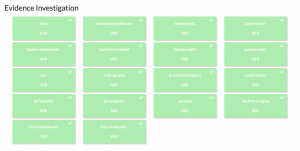There are a few round-up articles on FOI requests by journalists that have produced good stories in the UK press, but they’re getting a bit old. So here’s a list that shows what kind of things journalists have found out by using the Freedom of Information Act in recent years.
Dog attacks: 34% increase recorded by police in England and Wales (BBC)
Concerns about older drivers rising, DVLA figures suggest (BBC)
The tech flaw that lets hackers control surveillance cameras (BBC)
Seven-fold increase in adult ADHD prescriptions over 10 years (BBC)
UK banks are closing more than 1,000 accounts every day (Guardian)
McDonald’s offered Met police cheap burgers and free drinks during XR protests (Guardian)
400,000 trees planted in roadwork schemes have died (Times)
Hardship funding for students doubled last year (BBC)
‘Crypto muggings’: thieves in London target digital investors by taking phones (Guardian)
More People Than Ever Are Sleeping Rough on Night Buses – and It’s Going to Get Worse (Vice)
Companies House rejects 800 potentially offensive names (BBC)
Police face hundreds of sexual assault complaints (BBC)
Stonewall’s influence on BBC and Ofcom revealed (BBC)
Minors as young as 14 tasered by Avon and Somerset Police (Bristol Post)
Cardiff shops have been fined more than £1 million for abandoned shopping trolleys (Nation Cymru)
Dozens of prison staff sacked over prohibited items, MoJ figures show (Guardian)
UK tax evasion prosecutions fall by half in 5 years (FT)
More than 60 schools in Neath Port Talbot contain asbestos (Wales Online)
There will be fewer seats on some services when Wales gets its new trains (Wales Online)



